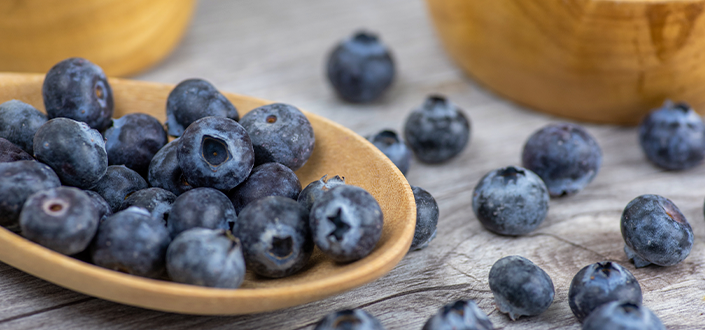Researchers from the Nutritional, Food and Health Biochemistry Research Group of the European University of the Atlantic (UNEATLANTICO), led by Maurizio Battino, are conducting a study on the role of polyphenols in the delay of ageing and age-related diseases, with the aim of finding new approaches to the study of ageing.
Aging is a physiological process characterized by a progressive deterioration of all biological functions and a marked reduction in resistance to stress. As one ages, the body undergoes a number of changes that lead to a decline in overall health and an increased risk of age-related diseases.
One of the key factors contributing to this process is oxidative stress, which occurs when there is an imbalance between the production of reactive oxygen species (ROS) and the body’s ability to neutralize them. Oxidative stress contributes to the development of age-related diseases such as cardiovascular disease, neurodegenerative disorders and cancer. The accumulation of ROS in the body can lead to cell damage, DNA mutations and inflammation, all of which are associated with the aging process. However, it has been found that polyphenols, present in a variety of fruits, vegetables and herbs, can play a crucial role in mitigating the effects of oxidative stress and slowing the aging process.
Polyphenols possess antioxidant and anti-inflammatory properties. These compounds have the ability to neutralize free radicals and reduce oxidative damage to cells and tissues. In addition, they have been found to activate various cellular defense mechanisms, including up-regulation of antioxidant enzymes and modulation of signaling pathways involved in inflammation and cell survival.
One particular group of polyphenols that has received much attention are flavonoids, which are present in various fruits, vegetables, tea and red wine. This component may protect against age-related diseases by inhibiting oxidative stress and inflammation, improving vascular function and enhancing cognitive function. Another group of polyphenols, known as phenolic acids, have also demonstrated health benefits. These compounds possess antioxidant, anti-inflammatory and anticarcinogenic properties. They neutralize free radicals, reduce inflammation and inhibit the growth of cancer cells.
While the relationship between polyphenols and aging is still being explored, existing evidence suggests a promising connection. Incorporating a variety of polyphenol-rich plant foods into the diet can have a positive impact on health and offer a natural way to slow the aging process. However, it is important to take into account the effectiveness of polyphenols, individual differences in metabolism and overall dietary patterns.
It is also recommended in future research to take into account the potency of other strategies such as hormesis or the combination of different approaches to develop new anti-aging strategies.
To read more about this study, you can access it through the following link: http://doi.org/10.3233/MNM-240057
To read more research, consult the UNEATLANTICO repository.
The European University of the Atlantic promotes various study programmes in the area of health and nutrition, including the degree in Human Nutrition and Dietetics (NHD) and the degree in Food Science and Technology (CTA). Don’t miss the opportunity to become a professional in the area of health and contribute to people’s wellbeing.


